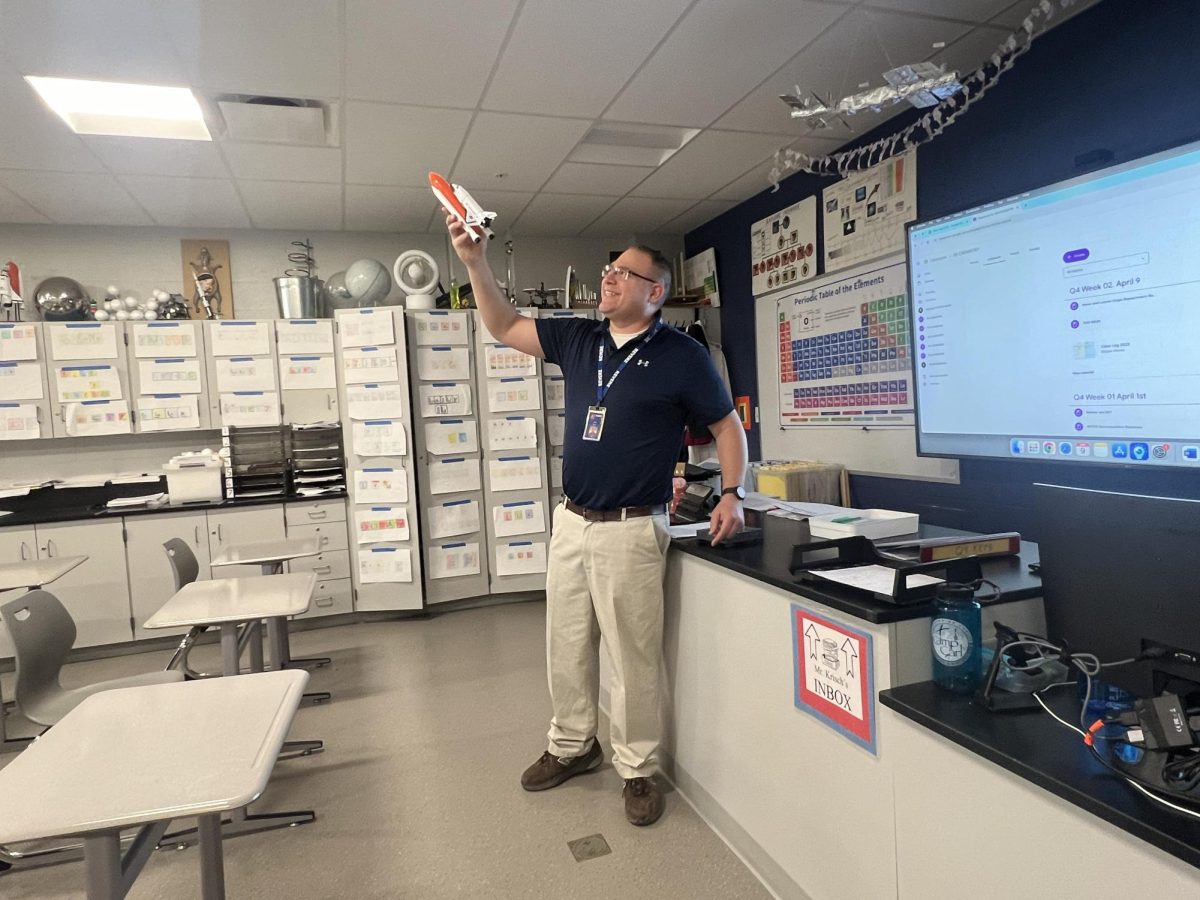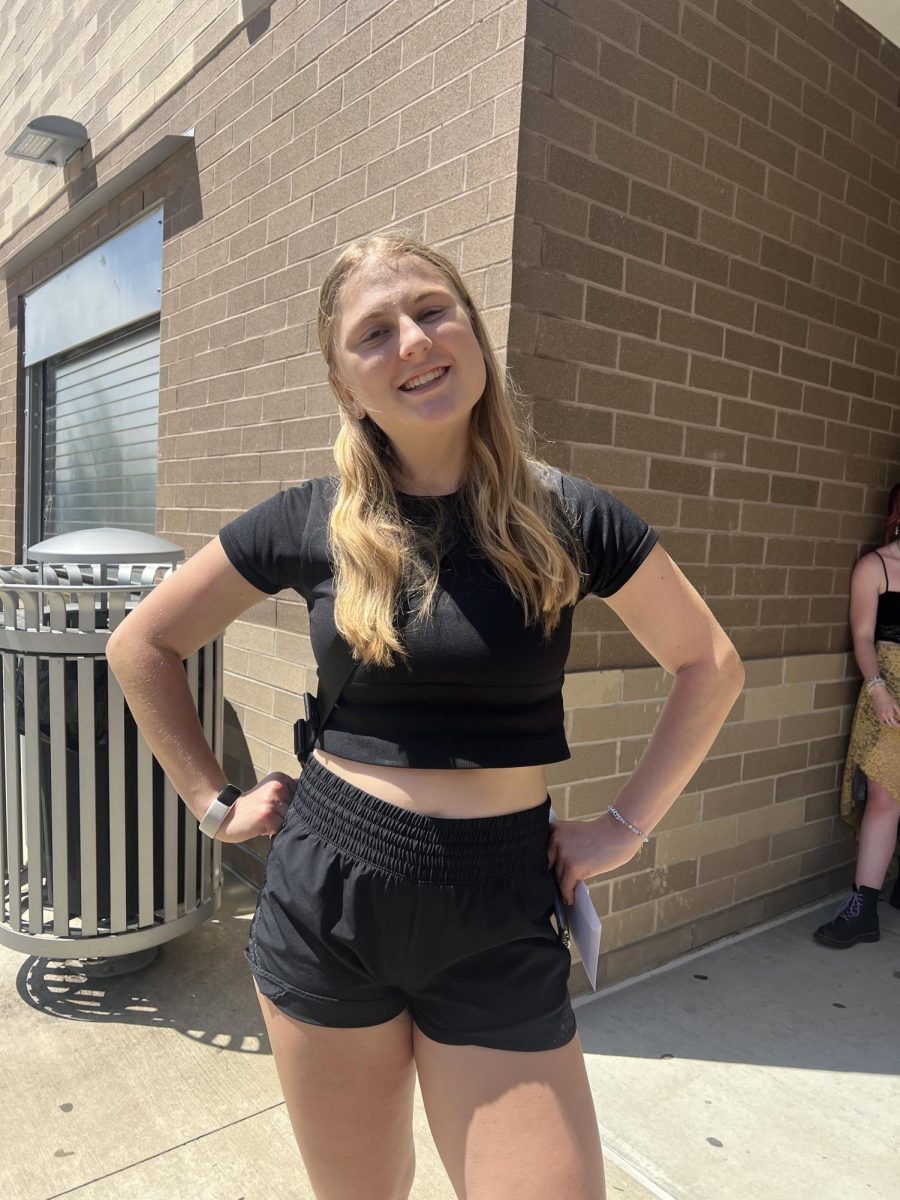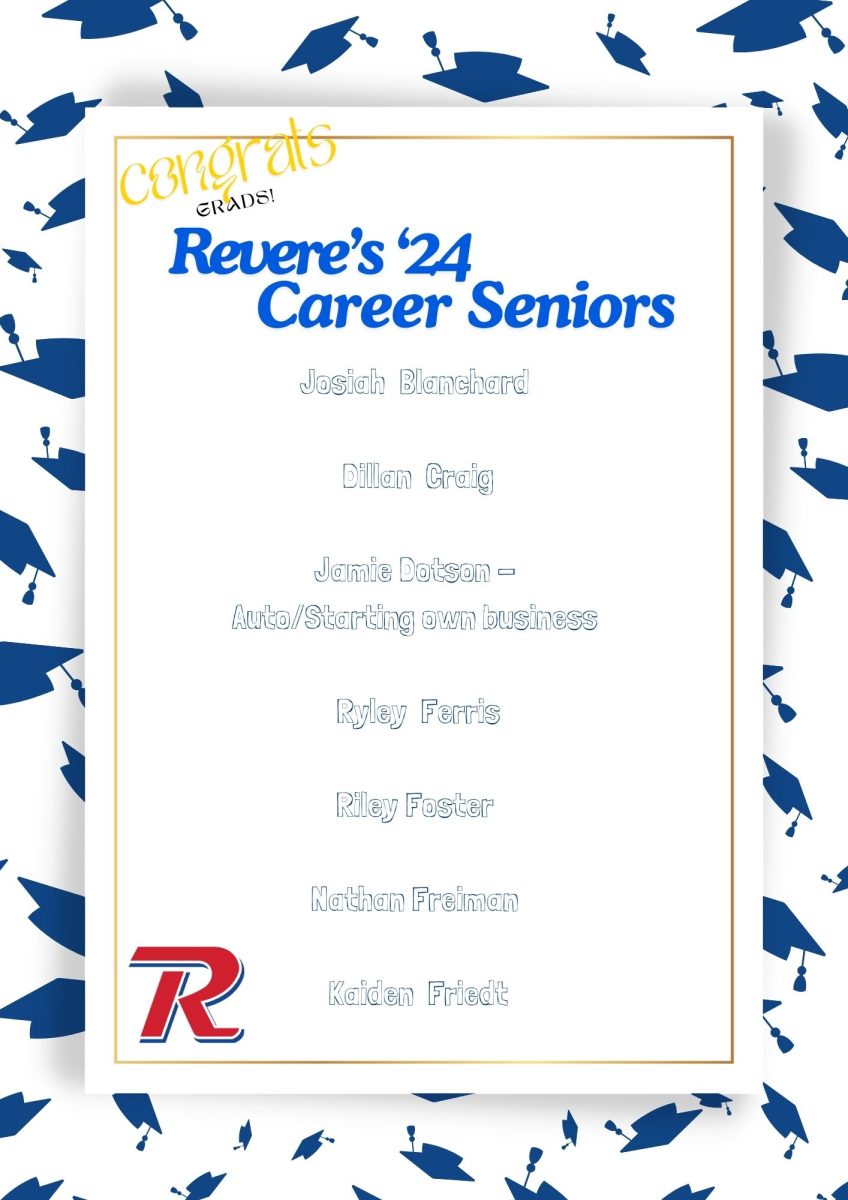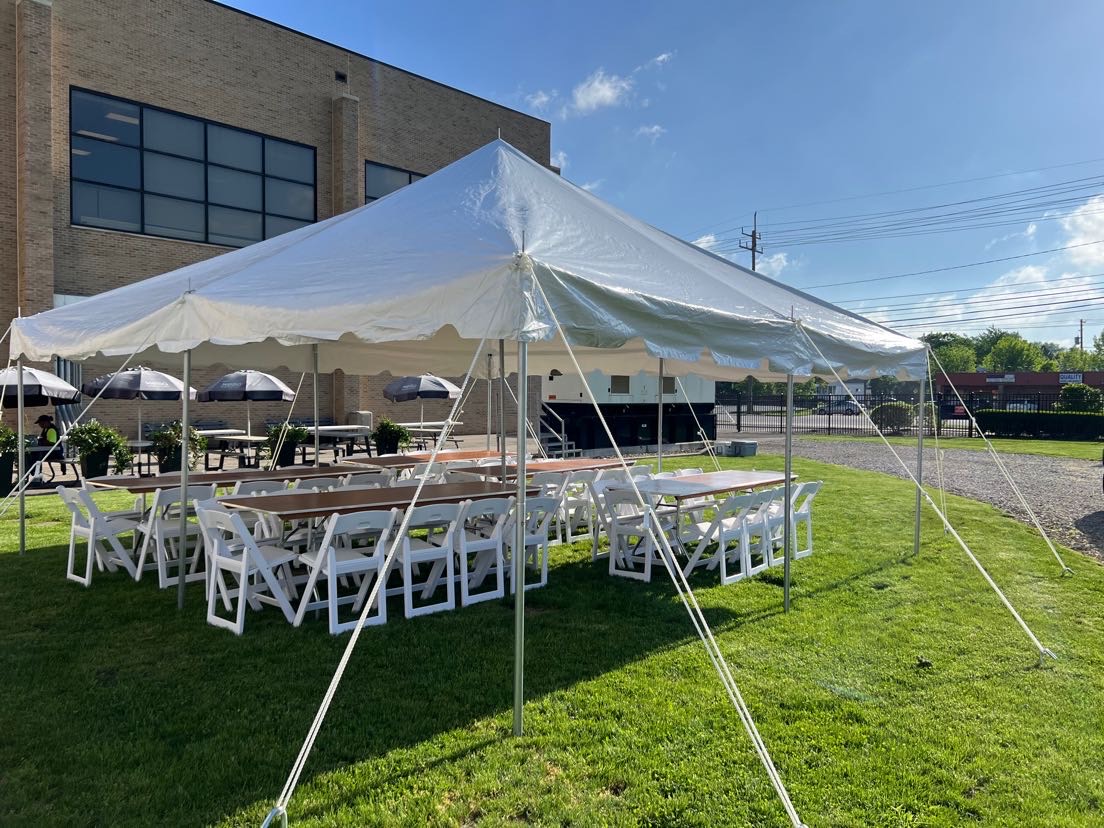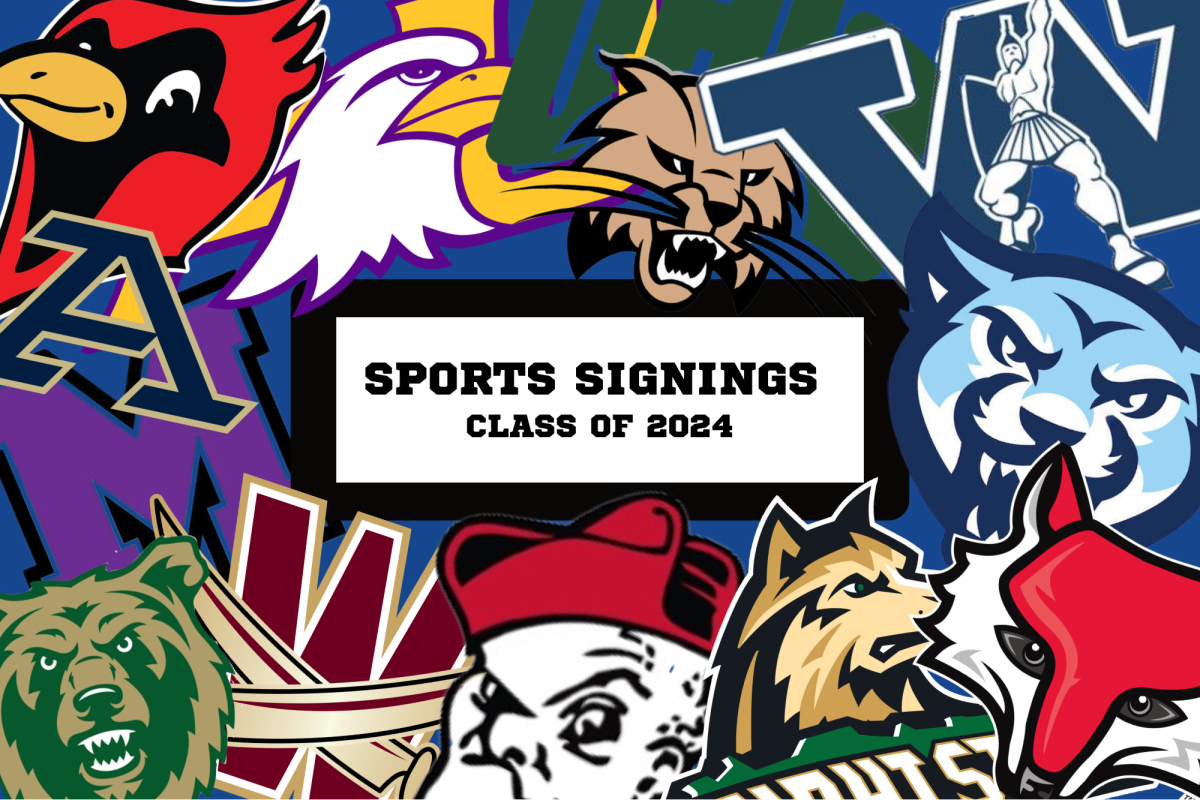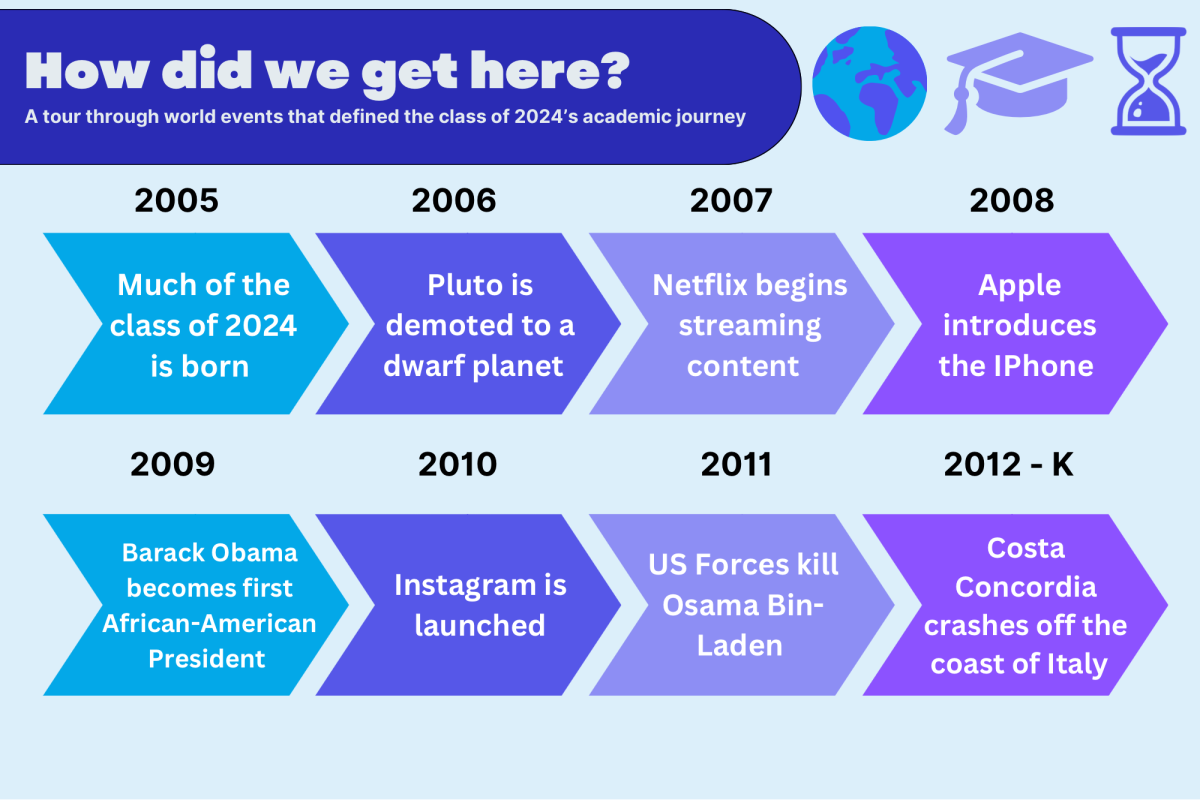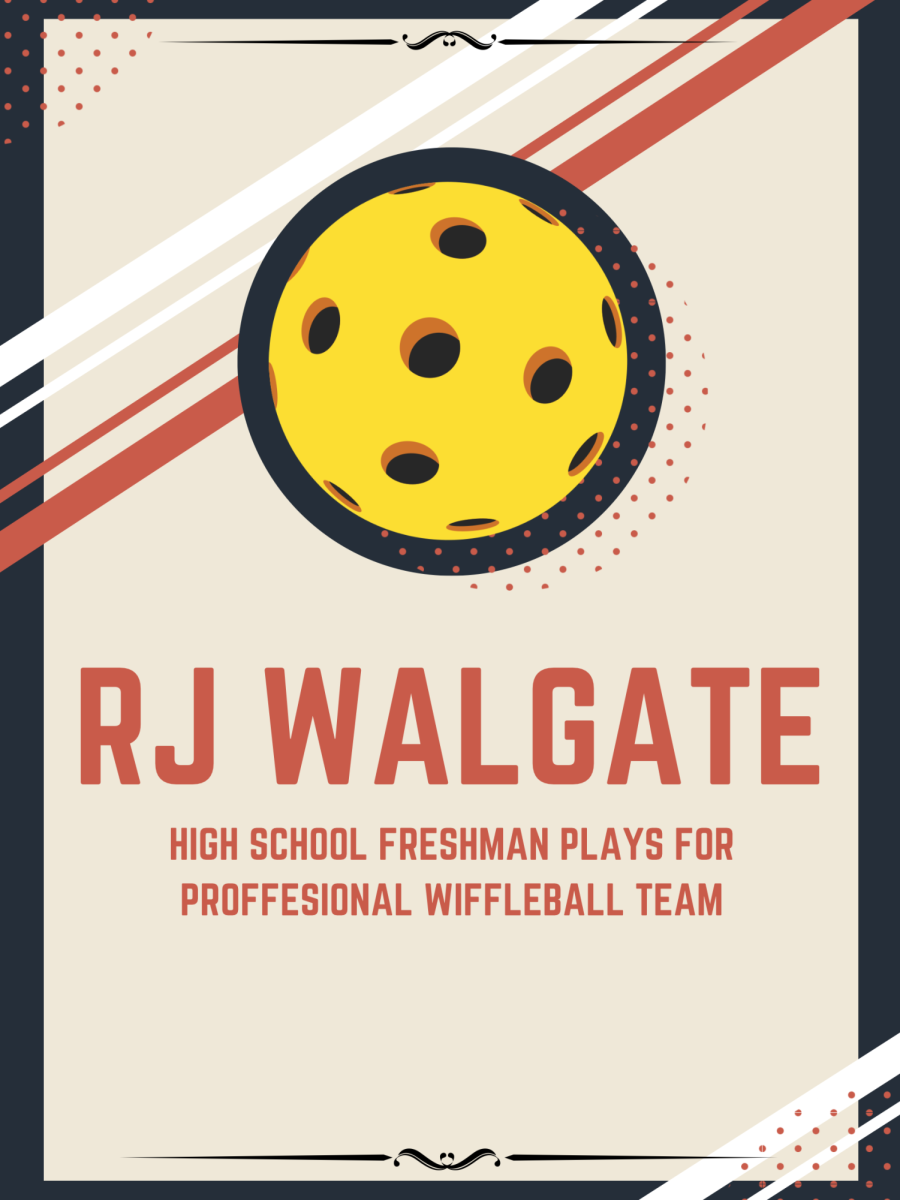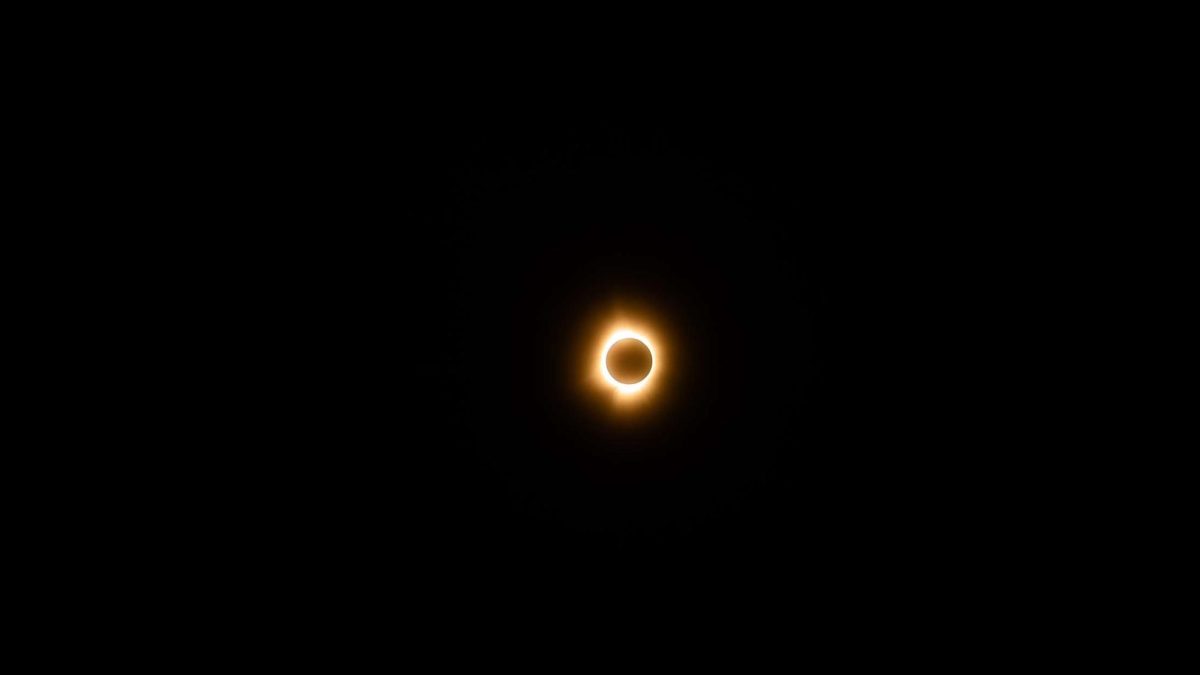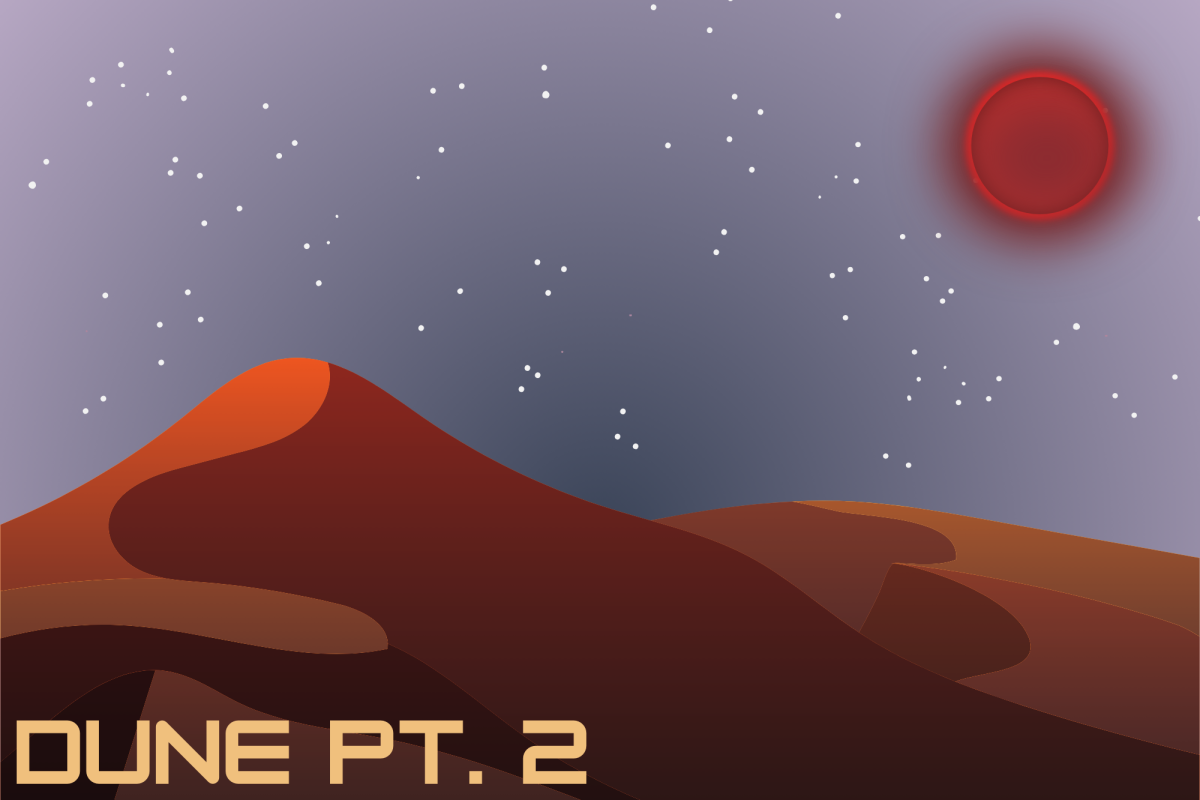Each semester, Robert Krisch kicks off his astronomy class (or classes, for that matter) with a “draw what you see exercise,” using nothing but an A4 sheet of paper filled with stars. Each student then demonstrates either their knowledge of galaxies far, far away, drawing patterns and constellations, or, they teach the class a little bit about themselves, drawing things that only they can see. From squirrels, to turtles, to representations of siblings, each student comes up with a different idea to fill the space, wis really what the constellations are all about: mere theories as to what lies within the night sky.
Each teacher and student brings along with them a history, a series of events that impacts their every decision, whether inside or outside the classroom. The differences among each individual is what allows for the school environment to be so interesting. Without them, school would be rather boring.
Down the science hallway of Revere High School (RHS), there is a teacher that truly understands this dynamic. Robert Krisch has worked as a science teacher at RHS for seventeen years and he brings countless stories from his past in the military, as a juggler traveling through China, and much more to share in the classroom.
Krisch grew up in Ohio and joined the military at a young age. He shared how he started in the field.
“It’s kind of like being on a sports team, like for football. Everybody’s got a different position. So when I was in the army, [you start at] your base, you do your boot camp, and then you become a soldier. From there, I specialized in the medical field,” Krisch said.
Medics serve a large purpose in the military. Not only do they come to people’s aid when needed, but they help prevent accidents from happening. Military training is extensive, Krisch explained how this impacted his role as a medic.
“There’s more injuries and deaths in training in the army than there are during war. [From] just training and working with the equipment, a lot of guys got hurt. A lot of times there were injuries from guys getting really tired and working with really dangerous equipment,” Krisch said.
Being a medic in the military is akin to being a lifeguard; both oversee and ensure the safety of all those around. A lifeguard must always be prepared to dive right into action, as must a medic. The vitality of medics and lifeguards can be ignored, as they only shine when people get injured, but their importance remains the same. Krisch explained how he acted akin to a lifeguard in the military, always observant and ready to jump right into action.
“You see a lifeguard sitting by the side of the pool, and they kind of watch what’s going on in the pool. And when somebody gets hurt or drowns, they kind of rush in and save the day. So as a medic, I was with a group of tankers and a combat unit that had tankers and scouts and all sorts of different frontline jobs. And what I would do is while the guys were practicing and shooting guns and things like that, I would oversee the training and make sure that people were being safe,” Krisch said.
There are many ways a person could get hurt while training. Krisch shared a specific example, highlighting the importance of a medic on the field.
“The hatches on a tank are . . . thick and they’re depleted uranium. They’re very, very heavy. So the guys would jump in the tanks and like a lot of times they shut the hatch and their hand would still be there. And it would flatten [or] pancake their fingers. Their fingers [would] squish out and then out of the tip of their finger, all the blood and everything shoots out. It’s really gross. And then their fingers were flattened like giant fifty cent pieces. So I had to make sure [the] guys [pulled their] hands and before [they] closed the hatch,” Krisch said.
Working with the military brings a lot of travel, which oftentimes helps expand a person’s horizons. This is a wonderful experience especially for a teacher, as a mentor with an open mind creates pupils with open minds. Though Krisch never did leave the United States with the army, he did get to travel throughout the country.
“So [working for the army], I never left the continental United States. When the Army found out I was a teacher, they quickly moved me into the role of troop training. So I then became a trainer for overseas deploying soldiers . . . That’s all I did for the rest of my career, training and deploying soldiers,” Krisch said.
Krisch became a teacher in a rather odd manner. Being in the military, he got to go to college to become a teacher for free. When he graduated, he continued working with the military while also working as a full time teacher.
“I was on duty. Part of that [meant] I was in the [National Guard], and part of it [meant] I was in the active duty Army. The army has multiple components. The active duty portion of the army is where you’re doing it every day and then the National Guard, you’re doing it every weekend or sometimes you get a weekend off. So while I was teaching here at Revere, I’ve actually been called on missions that were over a month long . . . My time in the army and my time teaching here overlapped,” Krisch said.
The overlap between his military career and the beginning of his teaching years further highlights how a teacher’s life outside of the classroom helps bring a new dynamic into the classroom. Krisch commented on how not only him, but other teachers around the school bring the lessons they have learned from life into the classroom.
“I see teachers who are passionate about ocean stuff, environmental stuff, teachers who are passionate about physics, who have worked in the field of physics, who have worked in electrical engineering, [and] who have come from many other experiences; they bring that excitement and knowledge to a classroom . . . I know in the army, I saw lots of lots of things. And many of those ideas from the medical field have transed directly into the classroom with experiences I’ve had, and stories to share: [experiences] that emphasize a point or a topic or a phenomenon of science,” Krisch said.
An example of scientific principle that not only deeply impacts life in the military, but also life in school, is Murphy’s law. Krisch explains the scientific and tangible impacts of this law.
“I can tell you that Murphy’s Law, which is a scientific precept, is very real. And that’s the idea that if there’s a possibility of something going wrong, that it will go wrong. We see that happen in scientific experiments, and we see that happen in the classroom . . . That same precept, that same idea of being extremely careful and safe, and thinking through things so that you don’t have an unexpected accident. It’s a very powerful thing that happened a lot in the military that . . . I think through it with all the labs we do,” Krisch said.
Krisch explained that one of the biggest lessons he learned from the military is that hard work is key. He brings this lesson with him to the classroom to this day.
“It was surprisingly difficult, and the amount of hard work it takes to succeed was one of the biggest things that I took away from the military. So how difficult it was and how much work it took to succeed [was the biggest lesson] . . . I am trying to be the best teacher I can possibly be,” Krisch said.
Being a teacher is not an easy job. Like most professions, people can often forget why they decided upon this career. However, for a teacher, the few yet memorable reminders of one’s impact in the community is what makes the hard work worthwhile. Krisch shares an example of how his impact as a teacher, in a way, helped shape the world.
“Last night, I had an ear infection and I went to go get it checked out. And the person who checked it out was a former student. So I run into former students all the time, and they constantly remind me that a small piece of my work went into their development . . . It’s easy to forget that your work here has any meaning, and I’m blessed that I’m constantly reminded of that, as people come back and they say, ‘No, actually, I remember this from class’ or ‘We did this one thing’ . . . As a teacher, there’s just nothing better than seeing that effect you have when those [same] people are out in the community,” Krisch said.
David Parry, a fellow science teacher who has worked with Krisch throughout his whole career at Revere, comments on what he believes makes Krisch so good at his job. The difference between a mentor and an instructor is rather simple.
“I know that Mr. Krisch brings a positive attitude to everything that he does. He works extremely hard to make sure that the content he presents to the kids is something that they can understand and be able to use as they continue their science journey. It’s a process you’re always trying to get better at. And I think that’s what separates teachers, teachers that continually try to improve, to get better at what they do. There’s never an end, there’s ‘how can I do it better?’ And that’s one thing that Mr. Krisch continues to do,” Perry said.
Krisch explains how his classroom works and how he ensures that all his students take advantage of the learning opportunities he presents.
“[Learning] is something that happens inside of a person’s head . . . I feel like as a teacher, I can provide experiences where people have opportunities to learn. And I feel like I can provide interest and challenge and questions that make somebody want to learn themselves. I can present information, but it’s really up to a student to have that desire to learn,” Krisch said.
Learning is something that, according to Krisch, depends mostly on the student. However, a teacher with a strong desire to teach, one who is consistently trying to be the best educator they can, does impact how well a student grasps the concepts at hand.
“I am trying to be the best teacher I can possibly be and bring as many experiences and knowledge from my own life as I can and some days are real big wins and some days are not. So I don’t know what I would consider myself. . . . I see myself working very hard. And I know from that aspect I put in the work I put in the time, and I try to do my best,” Krisch said.
Joshua Schaffer has worked with Krisch for several years now. Schaffer and Parry are both science teachers at Revere. They have many classes in common and work together most every day to ensure they are teaching the same material in ways that benefit their students. Schaffer comments on a small yet beneficial aspect Krisch brings to the job.
“Mr. Krisch is a really good handyman. Any tool I need for a lab or something like that, he always has it in his classroom,” Schaffer said (which is yet another lesson that, according to Krisch, he learned from the military).
Krisch continues to bring light and inspiration to RHS with each new day. His classes, and the stories that come with every lesson, continue to brighten the Revere community.

